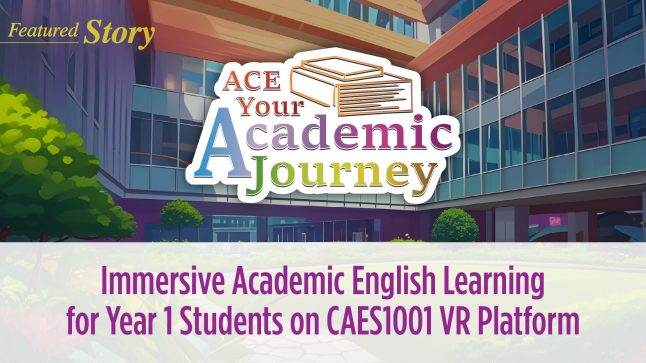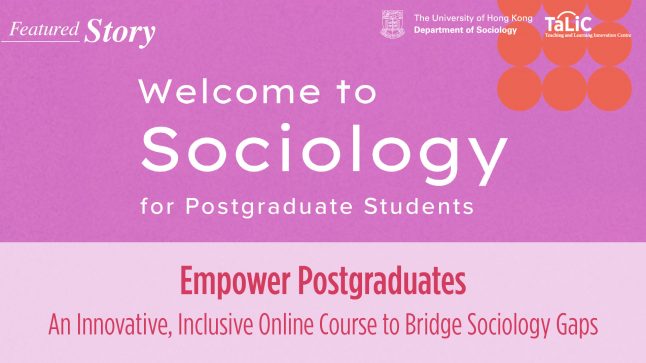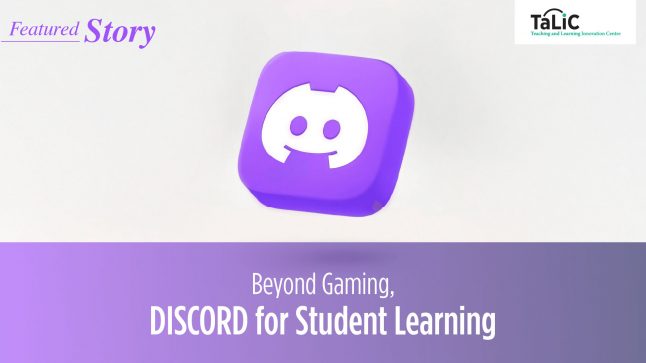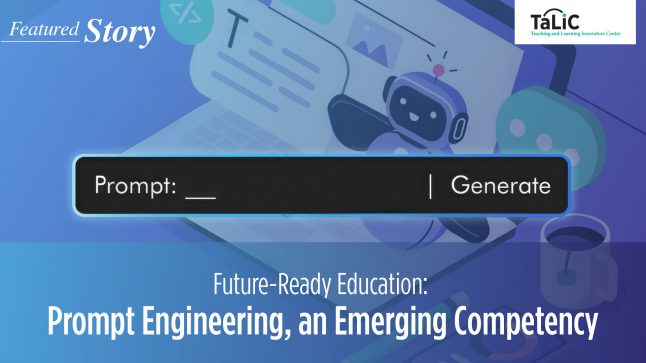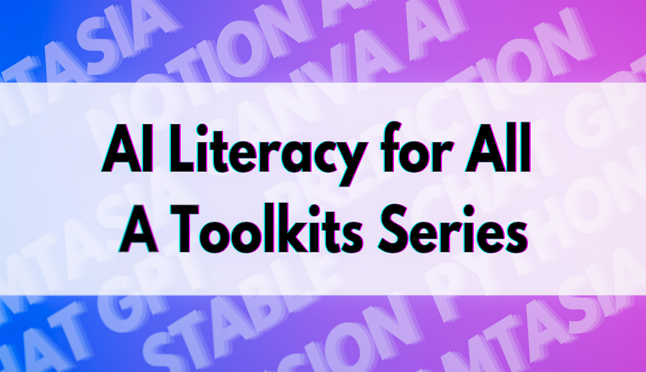
Explore the “secrets” of dental materials and digital dentistry together in the Materials in Oral Health MOOC offered by the best dental school in the world.
Click here if you cannot access Youtube.
We all need healthy teeth, don’t we? Have you ever wondered why titanium, ceramics and some synthetic polymeric materials are the “materials of choice” in oral health care? What are the “secrets” that make these materials so special for dental implants and other restorative procedures?

HKU Dentistry ranking No. 1 in the World has the vision to bring together the expertise and best practices in dental materials and biomaterials in the rerun of the MOOC Materials in Oral Health. The course is taught by a professional team of 30+ local, regional and international dentistry professionals and experts in dentistry and dental materials. What does this course cover? This 4-week Oral Biomaterials course unveils the exciting and unique properties and clinical implications of some state-of-the-art dental materials, including titanium, zirconia and modern synthetic polymer-based composites. We are also going to look at the crucial roles of CAD/CAM technology and 3D printing in dental application and digital orthodontics.

Oral biomaterials today is an exciting area encompassing contributions from professional dentistry to biology, chemistry, physics, material science, mathematics and engineering. Whether you are dental practitioners and dental technicians, non-dental practitioners, dental students, university students from various disciplines, or senior secondary school students – this course will open your eyes to the magic of dental materials science. If you are a prospective university student, this course can open up new and exciting opportunities possibly leading to new career paths.

Join us in the upcoming Materials in Oral Health MOOC on 22 March 2019 (HKT)!
Follow our Facebook pages: HKU Online Learning and Dental Materials Science, Faculty of Dentistry, HKU!
—
Learners’ Stories




Who are the Teachers in the MOOC course?
| Week 1 |
|---|
 Prof. Jukka Pekka Matinlinna (The University of Hong Kong) Prof. Jukka Pekka Matinlinna (The University of Hong Kong)
|
 Dr. Nikos Mattheos (The University of Hong Kong) Dr. Nikos Mattheos (The University of Hong Kong)
|
 Prof. Niklaus Peter Lang (The University of Hong Kong) Prof. Niklaus Peter Lang (The University of Hong Kong)
|
 Dr. Justin Paul Curtin (The University of Hong Kong) Dr. Justin Paul Curtin (The University of Hong Kong)
|
 Dr. Edmond Ho Nang Pow (The University of Hong Kong) Dr. Edmond Ho Nang Pow (The University of Hong Kong)
|
 Prof. Timo Närhi (The University of Hong Kong) Prof. Timo Närhi (The University of Hong Kong)
|
 Dr. Hamdi Hosni Hamama (The University of Hong Kong) Dr. Hamdi Hosni Hamama (The University of Hong Kong)
|
| Week 2 |
|---|
 Prof. Damien Walmsley (The University of Birmingham, UK) Prof. Damien Walmsley (The University of Birmingham, UK)
|
 Prof. Pekka Vallittu (The University of Turku, Finland) Prof. Pekka Vallittu (The University of Turku, Finland)
|
 Prof. Jukka Pekka Matinlinna (The University of Hong Kong) Prof. Jukka Pekka Matinlinna (The University of Hong Kong)
|
 Prof. Cynthia Kar Yung Yiu (The University of Hong Kong) Prof. Cynthia Kar Yung Yiu (The University of Hong Kong)
|
 Prof. Josette Camilleri (The University of Malta) Prof. Josette Camilleri (The University of Malta)
|
 Dr. Manikandan Ekambaram (The University of Hong Kong) Dr. Manikandan Ekambaram (The University of Hong Kong)
|
| Week 3 |
|---|
 Dr. James Kit Hon Tsoi (The University of Hong Kong) Dr. James Kit Hon Tsoi (The University of Hong Kong)
|
 Dr. Walter Yu Hang Lam (The University of Hong Kong) Dr. Walter Yu Hang Lam (The University of Hong Kong)
|
 Prof. Michael Bornstein (The University of Hong Kong) Prof. Michael Bornstein (The University of Hong Kong)
|
 Dr. Andy Wai Kan Yeung (The University of Hong Kong) Dr. Andy Wai Kan Yeung (The University of Hong Kong)
|
 Dr. Henry Wai Kuen Luk (The University of Hong Kong) Dr. Henry Wai Kuen Luk (The University of Hong Kong)
|
 Dr. John Yung Chuan Wu (The University of Hong Kong) Dr. John Yung Chuan Wu (The University of Hong Kong)
|
 Dr. Winnie Wing Shan Choi (The University of Hong Kong) Dr. Winnie Wing Shan Choi (The University of Hong Kong)
|
 Dr. Dominic King Lun Ho (The University of Hong Kong) Dr. Dominic King Lun Ho (The University of Hong Kong)
|
 Dr. Will Wei Qiao (The University of Hong Kong) Dr. Will Wei Qiao (The University of Hong Kong)
|
| Week 4 |
|---|
 Dr. Tian Tian (The University of Hong Kong) Dr. Tian Tian (The University of Hong Kong)
|
 Dr. Xiaozhuang Jin (The University of Hong Kong) Dr. Xiaozhuang Jin (The University of Hong Kong)
|
 Dr. Prasanna Neelakantan (The University of Hong Kong) Dr. Prasanna Neelakantan (The University of Hong Kong)
|
 Prof. Will Palin (The University of Birmingham) Prof. Will Palin (The University of Birmingham)
|
 Prof. Edwin Kukk (The University of Turku, Finland) Prof. Edwin Kukk (The University of Turku, Finland)
|
 Dr. Sari Granroth (The University of Turku, Finland) Dr. Sari Granroth (The University of Turku, Finland)
|
Sneak Previews
Have a taster of what will be taught in this course!
(Sneak preview playlist here.)
The Application of Silicon and Silicon Compounds in Dentistry – Prof. Jukka Pekka Matinlinna
– “Silicones find a wide range of biomedical applications…”
Dental Material Choice: Zirconia vs Titanium – Prof. Niklaus P. Lang
– “Shortcomings with titanium are mostly aesthetic in nature…”
What is Digital Dentistry? – Dr. James Tsoi
– “Digital dentistry is one of the emerging fields in dentistry…”
Materials used in Implants – Dr. Nikos Mattheos
– “Osseointegration is a remarkable story of scientific discovery…”
More sneak previews here.


